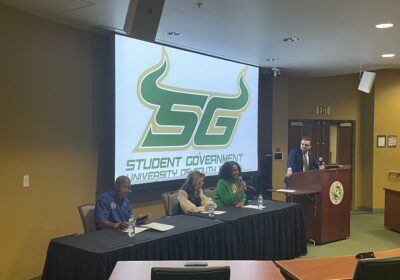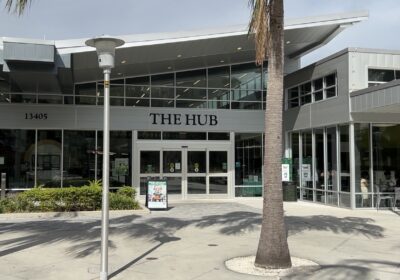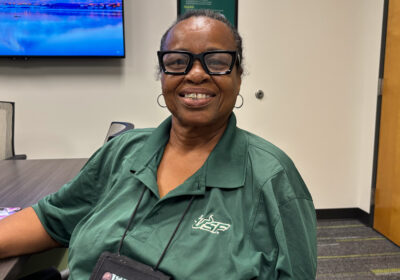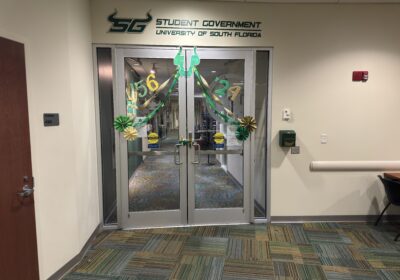COVID-19 mitigation strategies, randomized testing adjusted for spring
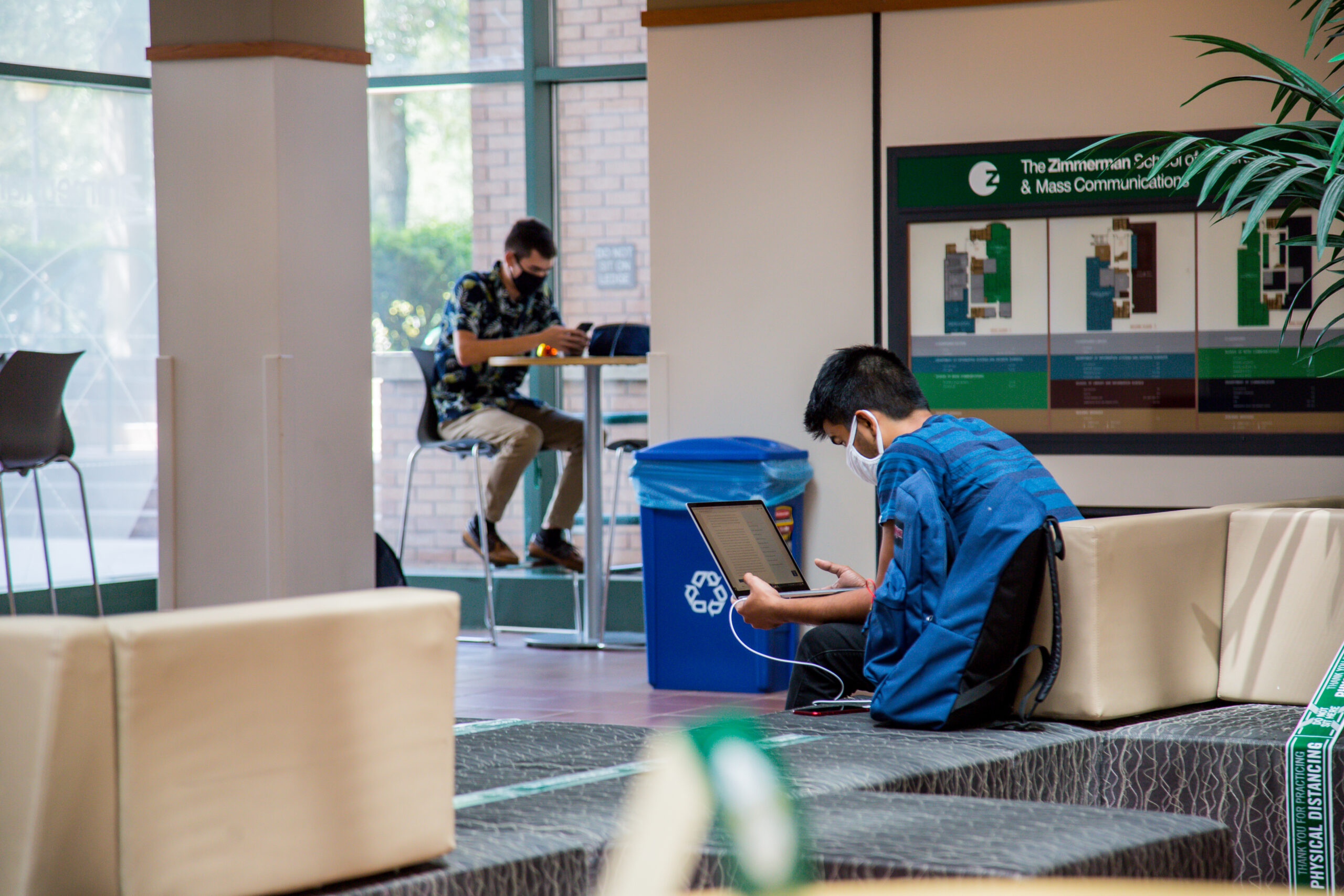
With continuously increasing amounts of cases in Hillsborough and other surrounding counties, the USF COVID-19 Task Force’s mitigation measures are being slightly amped up for the spring semester as a way to more effectively mitigate COVID-19 spread.
USF will be moving into the spring semester still in Phase II of the Resuming University Operations Amid a Global Pandemic plan, but with some adjustments.
Revisions have been made to the Daily Symptom Check and Return to Campus Assessment so that they are more specific in determining students’ presence on campus, and randomized testing will be done at five times the rate it was last semester, which will be around 1,500 to 2,000 students each week compared to 300 to 400 students a week in the fall.
“Numbers are up. This is not the time to relax, not the time to get close, congregate, gather, take your face mask off,” said USF College of Public Health Dean and COVID-19 Task Force Chair Donna Petersen. “Now’s the time to actually be more assertive in your desire to prevent this virus.”
If all goes according to plan, Petersen said the university could move into Phase III during Summer B, which would then allow up to 75% of staff to return to campus. The university’s current Phase II stage only allows for up to 50% of staff to return to campus.
“Apparently, we’re all eternal optimists, so we’re looking at the Summer B session,” said Petersen. “That’s our beacon. We’d love to get to Summer B and have a normal Summer B.
“We have no way to predict if that will be a reality or not, we’re very very hopeful but … we take this … one day at a time. We try to look enough into the future, but not overpromise.”
Additional testing measures have already started as students began moving into on-campus residence halls Thursday. All students living on campus for the spring semester received a nasal swab PCR test by Student Health Services (SHS) as they checked in to move into their dorm rooms.
“What we’re going to be asking for [residents] to do is to sort of limit their activity to essential activity [while they wait for their results],” said Assistant Vice President of Housing and Residential Education Ana Hernandez. “Obviously going to get something to eat, doing their move-in process, etc., but trying to limit their contact as much as possible until those results do come back.”
Hernandez said students will receive their results 24 to 48 hours after being tested.
If a student living on campus tests positive for COVID-19, isolation operations will remain the same as they were in the fall, with students required to isolate at on-campus isolation spaces located in the Cypress Suites residence halls for 10 to 14 days. If a student tests positive, they are relocated to their isolation space the same day of their positive test result and are given two hours to pack their essential belongings.
When in isolation on campus, students are not allowed to leave their isolation spaces at any time unless they have been authorized to do so or have been cleared by SHS.
“We had great success with regard to the control of the spread of the virus within the residential community, and so we’re going to continue on with that process as we had in the fall semester,” said Hernandez.
With many returning from holiday travels, on-campus residents are not the only ones that USF is trying to keep track of.
The Return to Campus Assessment will now ask more descriptive questions to determine how many people will be visiting campus and how often. The questionnaire asks for information like the intention to visit campus regularly, remaining off campus for the entire semester, intending to visit campus fewer than four times a month and intending to visit rarely or on an as-needed basis.
In the fall semester, the assessment merely asked if students, faculty or staff were returning to campus at all.
Petersen said the questions more accurately reflect how often someone is visiting campus, narrowing down the amount of Daily Symptom Check reminders to those who are coming to campus on a regular basis. Someone who’s coming to campus on a regular basis is someone who’s visiting at least once a week, according to Petersen.
While some students might not plan to visit campus on a regular basis, Petersen said they are still encouraged to complete the Daily Symptom Check, which also looks different this semester. Even if someone answers that they won’t be visiting campus that day, the questionnaire will still ask if the person has been experiencing COVID-19 symptoms or if they think they’ve been exposed to the virus.
“Even if you’re not coming to campus, we care about you and we want to know what’s going on and we want to be supportive and helpful,” said Petersen. “Also, quite frankly, just because you didn’t come to campus on Friday, maybe you were on campus Thursday and might have been infected with the virus and not known it so it really helps in our risk assessment.”
Petersen also hopes to see more enforcement of the CampusPass for those on campus, the QR code given to students and employees allowed on campus after completing their Daily Symptom Check.
“We are going to be asking, I hope, more routinely to see the CampusPass because that’s half the point,” said Petersen.
Currently, the facilities that require the CampusPass to enter are the USF Libraries, the Campus Recreation Center, the Fit and Riverfront Park, which will also look slightly different in the spring semester.
The libraries’ COVID-19 mitigation measures will remain in full effect for spring, according to USF Libraries Dean Todd Chavez, including showing the CampusPass upon entering the building, seat reservations, face coverings, social distancing and shortened hours compared to pre-COVID-19 operations.
However, the Tampa campus’ library will be open slightly more than it was last semester, with an 8 a.m. to 9 p.m. window Monday through Thursday compared to the 9 a.m. to 6 p.m. schedule in the fall. The Tampa library will also be open Sundays from 1 p.m. to 9 p.m.
USF Recreation and Wellness facilities will also maintain previous COVID-19 mitigation strategies, including the required CampusPass upon entrance, face coverings at all times, social distancing and a reservations system.
Director of Recreation and Wellness Jay Souza said the department’s current strategies will be extended as it begins providing some in-person group fitness classes, such as yoga and cycling, starting Monday. While in-person group fitness classes have not been hosted since March, Recreation and Wellness will start offering under a strict capacity of nine participants per class with one instructor.
Although the changes are minimal, it makes the spring semester appear just a bit different than the last.
“Believe me, we’re all as eager as you are to not be doing this,” said Petersen. “But we have to do whatever we do as safely as we can.”

